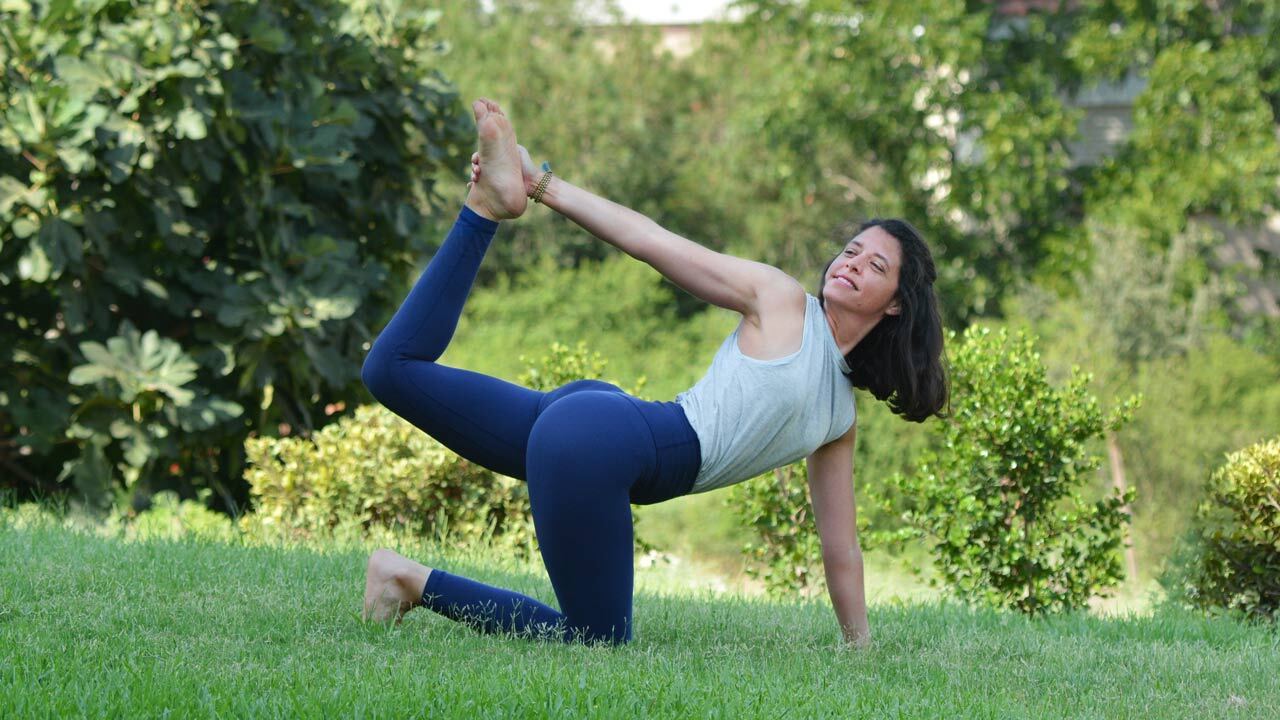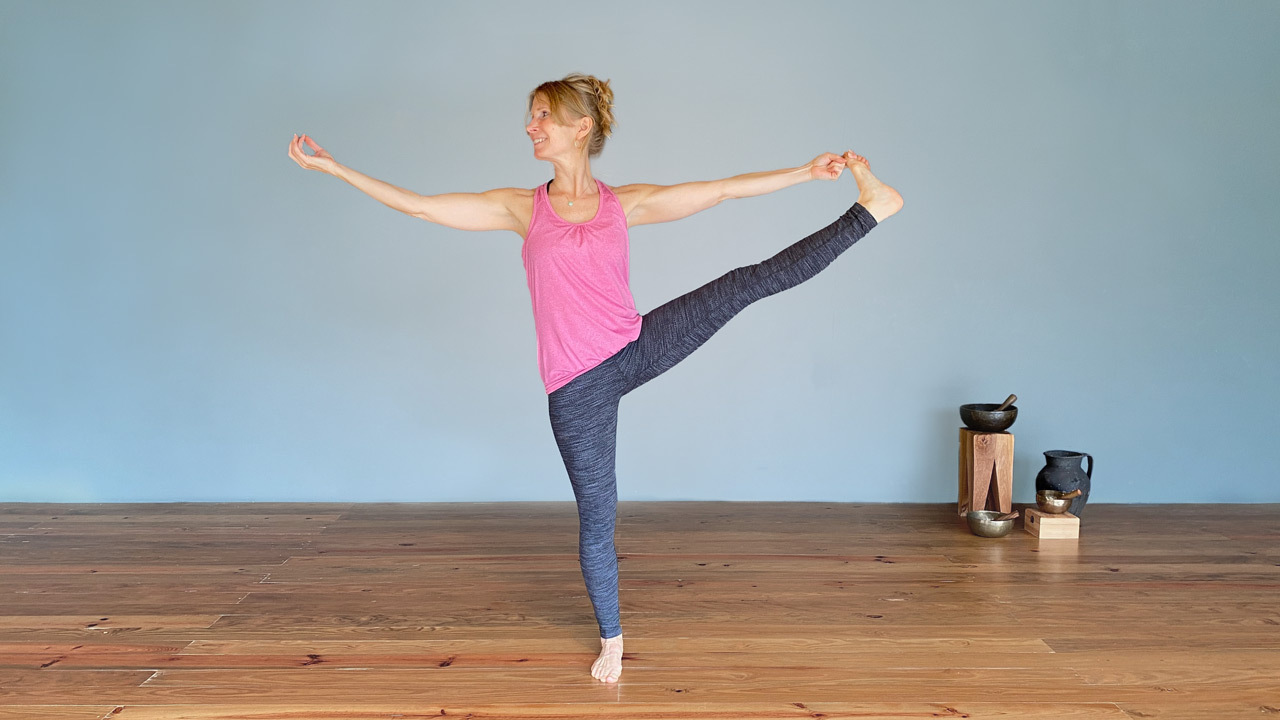The short answer – for you time-pressed folk – is yes. If shorter yoga sessions mean we’re more likely to do them and, crucially, keep doing them!
The benefits of yoga and being physically active
There’s an abundance of research to show that being more physically active lowers our risk of developing many long-term conditions including heart disease, stroke, type 2 diabetes, some forms of cancer and depression. Alongside these preventative health benefits we also know that exercise simply makes us feel good! When we exercise we release neurotransmitters that give us a natural high and strengthen our brain’s response to everyday pleasures – even when we’re not exercising.
Research into yoga specifically is still a developing field. However, there is increasing evidence to show links between yoga and improvements in diabetes, cardiovascular function, menopausal symptoms and musculoskeletal conditions. As well as in anxiety, stress, depression and general mental health. For those who like to dive into the evidence this article by Professor Gothe Neha provides lots of further reading.
Yet despite all the glowing evidence in its favour, various estimates say that less than half of people in the US meet the recommended minimum of 150 minutes of moderate to vigorous physical activity (MVPA) per week. The numbers in the UK are pretty similar. Bearing in mind that this is the recommended minimum rather than optimal amount of activity.
The two main reasons people give for not exercising are lack of motivation and lack of time. But we don’t have to slog it out in the gym for hours or commit to 90 minutes of Power Yoga to experience many of the benefits. These 150 minutes of MVPA can be broken down into chunks through the week, and even very short sporadic daily activities that get us out of breath such as running for a bus or carrying bags up the stairs make a positive difference to our health.
Is it better to do several short sessions of exercise or one long one?
There are lots of studies from the field of sports science to show that splitting your workouts into multiple short sessions can be as good, if not better, than one long session for a range of measures including heart health, weight loss, aerobic fitness.
More frequent sessions of physical activity can also have a positive effect on our mental health. One study found that on days people were active their negative emotions in response to stress were significantly lower than on non-active days. This was the case with just a minimum of 10 minutes of activity. Exercise appeared to bolster their capacity to psychologically manage the stressful events in a more effective way.
However much of the research on very brief exercise sessions is based on high intensity interval training, and while some yoga classes bring in elements from strength and fitness training we’re clearly not comparing like for like!
So what about yoga?
Without a doubt having an hour or more allows us go deeper into our practice but many of us don’t have the time to do this on a regular basis. Can you still get the benefits of yoga in 20 minutes? The growing body of yoga research tends to focus on its therapeutic use in smaller clinical groups of people so we don’t have many large scale studies to draw on.
However, a 2012 study of over 1000 yoga students found that it was the frequency of their home yoga practice that favourably predicted different health measures such as levels of mindfulness, subjective well-being, BMI, fruit and vegetable consumption, vegetarian status, sleep, and fatigue. This frequency of practice appeared to have a greater effect than the number of years they had practiced or how many studio classes they attended.
Another study of over 700 people found that practising just 12 minutes of yoga poses either daily or every other day improved their bone health. And another small scale study found that 20 mins of yoga improved focus and working memory.
And of course yoga isn’t just another form of exercise. It also includes the meditative aspects and breathing techniques so we need to look at its broader benefits. According to Headspace, the meditation app, much of the recent research into the the optimal time to meditate suggests that frequency is more important than duration. So that, meditating for 10 minutes a day, every day of the week, is likely to be far more beneficial than 70 minutes on one day of the week.
Shorter sessions make it easier to form habits
As we said at the start the major barriers people face for not exercising are time and motivation. We know from leading behavioural scientists like BJ Fogg and clinicians like Dr Chattergee that when we start with small behaviours we’re more likely to be consistent with them so that they become habits. So one of the main benefits of shorter yoga sessions is that they are easier to fit into our day and we’re therefore more likely to keep doing them.
The optimal time to exercise or practice yoga is whatever you can fit into your schedule and repeat. The key thing is to find something we enjoy and then to stick to it!
Find short classes on EkhartYoga
With an EkhartYoga membership you can choose classes from 5 minutes to 90+ minutes. Just go to the classes page and use the Duration filter to pick how long you have to practice. Or click on these links and they’ll take you to:
Or, if you’d like to challenge yourself, join our new…
21 Mornings with Yoga program!
Begin your day with yoga and notice the effect it has on your mood, ability to concentrate and capacity to see the bigger picture. The classes are a mix of active and energising Hatha and Vinyasa flows and each is around 20 minutes long so that you can easily fit it into your morning routine. By the end of the challenge, our hope is that stepping onto your mat every day becomes something you look forward to and sustains your energy and focus for the rest of the day.
Related


